Note
about your Vietnamese summer vocab list, is cà rem not used for ice cream anymore? My Vietnam War-era Viet family has always used the word "cà rem" to refer to ice cream and I've always only heard that word to refer to ice cream growing up
Hi! Cà rem works as well although I think it is a bit less common than kem. Thanks for asking!
27 notes
·
View notes
Photo

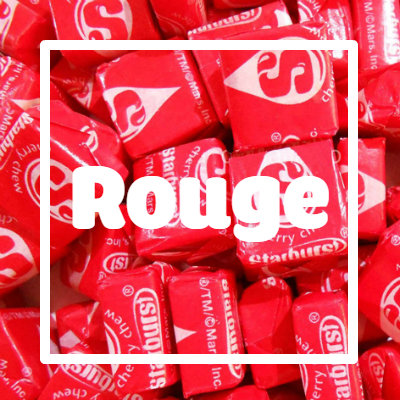
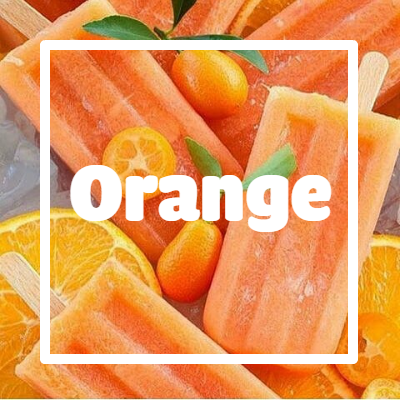
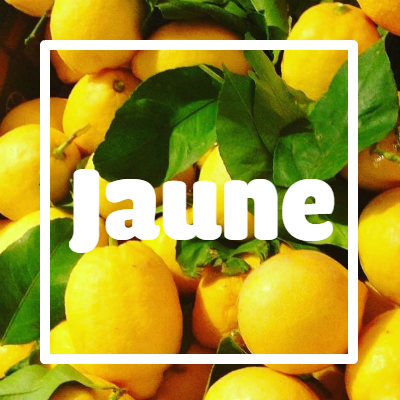
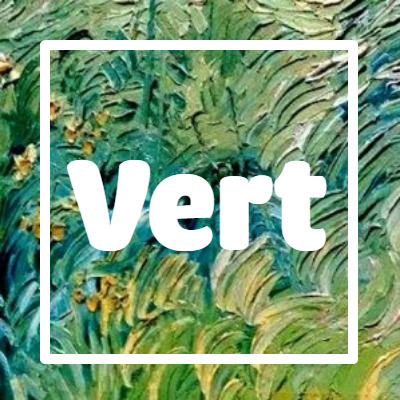

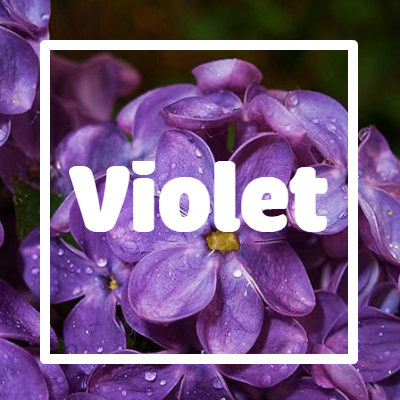
#french#france#french language#Learn French#learning french#french langblr#language#langblr#languageblr#translatewithme#french beginners#Beginners#french vocab#French Vocabulary#mine#vocabulary
109 notes
·
View notes
Text
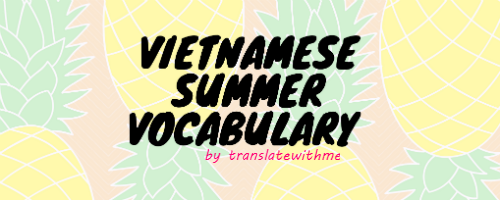
Hi guys! I know that summer is almost over and in some parts of the world, summer is already over haha. But here you go:
Mùa hè (n.) - summer
Bãi biển (n.) - beach
Mặt trời (n.) - sun
Hồ bơi (n.) - pool
Bơi (v.) - to swim
Kem (n.) - ice cream
Đi cắm trại (v.) - to go camping
Đom đóm (n.) - firefly
Người cứu hộ (n.) - lifeguard
Kem chống nắng (n.) - sunscreen
Đi du lịch (v.) - to travel
Đồ bơi/áo tắm (n.) - swimsuit
Cát (n.) - sand
Quạt (n.) - fan
Kỳ nghỉ (n.) - vacation
Thể thao (n.) - sport
Vỏ sò (n.) - seashell
Nông thôn/Quê (n.) - countryside
Mồ hôi (n.) - sweat
Tắm nắng (v.) - sunbathe
Say nắng (n.) - heatstroke
Nóng (adj.) - hot
Thả diều (v.) - to fly a kite
Phao (n.) - float
Du khách (n.) - tourist
#vietnam#vietnamese#Vietnamese language#learn vietnamese#learning Vietnamese#vietnamese langblr#language#langblr#languageblr#translatewithme#vietnamese beginners#Beginners#vietnamese vocab#vietnamese vocabulary#mine#vocabulary
151 notes
·
View notes
Text
I'm Back! Ya girl graduated!!
Hi guys! Sorry for the super long hiatus. I was a senior in high school when I created this Tumblr. School and the process of applying to colleges were busier than I thought and I didn't have much time to create quality contents as well as answering any questions for you guys. I'm sorryyy :’( Thank you for sticking around with my blog <3 Here are some updates on me: I will be attending the University of Texas at Austin next year, majoring in Plan II Honors (an interdisciplinary major) and Cell and Molecular Biology with a minor in French. I also plan on taking Mandarin Chinese in college. I’m planning other things for this blog and looking into the possibility of expanding this outside of Tumblr as well. What do you guys think?
14 notes
·
View notes
Text
chinese new year vocab in mandarin

so chinese new year (also known as the lunar new year or the spring festival) is next month (16 february to be exact), and i figured it would be useful to make a vocab list for it
春节/春節 chun1 jie2 spring festival/chinese new year
农历新年/農曆新年 nong2 li4 xin1 nian2 lunar new year
农历/農曆 nong2 li4 the lunar calendar
除夕 chu2 xi1 (lunar) new year’s eve
过年/過年 guo4 nian2 to celebrate the new year
拜年 bai4 nian2 to pay a new year call, to wish sb a happy new year
年夜饭/年夜飯 nian2 ye4 fan4 new year’s eve dinner
红包 hong2 bao1 red envelopes
春联/春聯 chun1 lian2 couplets
舞龙/舞龍 wu3 long2 dragon dance
舞狮/舞獅 wu3 shi1 lion dance
放鞭炮 fang4 bian1 pao4 to set off firecrackers
年糕 nian2 gao1 new year cake
鱼/魚 yu2 fish (sounds like the word 余 yu2 meaning surplus)
饺子/餃子 jiao3 zi dumplings
生肖 sheng1 xiao1 animal from the chinese zodiac
属/屬 shu3 to be born in the year of (one of the 12 animals)
你属什么生肖?/你屬什麼生肖?ni3 shu3 shen2me sheng1 xiao1?
我属…/我屬… wo3 shu3…
鼠 shu3 rat
牛 niu2 ox
虎 hu3 tiger
兔 tu4 rabbit
龙/龍 long2 dragon
蛇 she2 snake
马/馬 ma3 horse
羊 yang2 goat
猴 hou2 monkey
鸡/雞 ji1 rooster
狗 gou3 dog (2018 is the year of the dog!)
猪/豬 zhu1 pig
and now for some greetings! (note: there are many more than these; the ones i listed are just the ones i’ve seen most often)
祝你/您… zhu4 ni3/nin2… wishing you…
恭喜发财/恭喜發財 gong1 xi3 fa1 cai2 wish you wealth and prosperity
大吉大利 da4 ji2 da4 li4 great luck, great profit (this phrase was very big last year, which was the year of the rooster, because 鸡 and 吉 sound similar)
年年有余/年年有餘 nian2 nian2 you3 yu2 may you have abundance every year
学业进步/學業進步 xue2 ye4 jin4 bu4 may your studies improve
步步高升 bu4 bu4 gao1 sheng1 may every step take you higher
新年进步/新年進步 xin1 nian2 jin4 bu4 may the new year bring better things
万事如意/萬事如意 wan4 shi4 ru2 yi4 may all your hopes be fulfilled, may everything go well with you
身体健康/身體健康 shen1 ti3 jian4 kang1 wishing you good health
so this is it for this post! i know there are so many traditions around the new year and i tried to fit as many in as i could, but this list is definitely not exhaustive
please let me know if there’s any mistakes and i’ll fix them asap!!
#chinese#learn chinese#learning chinese#china#vocabulary#intermediate#chinese intermediate#Chinese Vocabulary#chinese vocab#language#Chinese language#langblr#chinese langblr#languageblr
1K notes
·
View notes
Note
Hello! I'm really glad I found your blog because I've been wanting to learn Vietnamese for a while! I was wondering what dialect you make your posts in though?
Hi! Thank you so much, you have no idea how much that means to me!! I’m from the South so I typically post in Southern dialect. But if I know how to say it in Northern dialect, I try to include that as well. Sometimes I just pick the option that is easier for English speakers to pronounce. But don’t worry, the two dialects are very similar so you’ll be fine either way haha.
11 notes
·
View notes
Text
when you’re anxious about your language learning:
LANGST
1K notes
·
View notes
Text
book vocab in mandarin
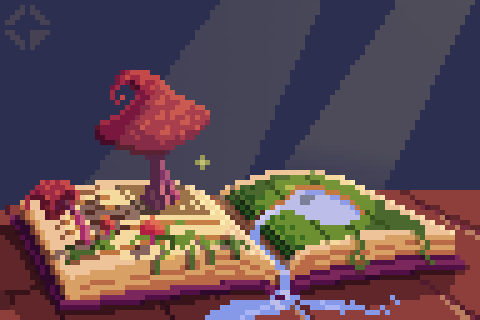
书 「書」 shu1 book 【本】
书本 「書本」 shu1 ben3 book
书名 「書名」 shu1 ming2 book title
书签 「書籤」 shu1 qian1 bookmark 【张/張】
书皮 「書皮」 shu1 pi2 book cover, book jacket
书脊 「書脊」 shu1 ji3 spine of a book
章 zhang1 chapter
页 「頁」 ye4 page
作家 zuo4 jia1 author
图书馆 「圖書館」 tu2 shu1 guan3 library
书店 「書店」 shu1 dian4 bookstore
小说 「小說」 xiao3 shuo1 fiction
非小说 「非小說」fei1 xiao3 shuo1 non-fiction
传记 「傳記」 zhuan4 ji4 biography
自传 「自傳」 zi4 zhuan4 autobiography
图画书 「圖畫書」 tu2 hua4 shu1 picture book
百科全书 「百科全書」 bai3 ke1 quan2 shu1 encyclopedia 【本,集】
童话 「童話」 tong2 hua4 fairytale
传说 「傳說」 chuan2 shuo1 legend
寓言 yu4 yan2 fable 【则/則】
神话 「神話」 shen2 hua4 myth
幻想小说 「幻想小說」 huan4 xiang3 xiao3 shuo1 fantasy
科幻小说 「科幻小說」ke1 huan4 xiao3 shuo1 science fiction novel
推理小说 「推理小說」tui1 li3 xiao3 shuo1 mystery novel, whodunit
当代小说 「當代小說」 dang1 dai4 xiao3 shuo1 contemporary novel
历史小说「歷史小說」li4 shi3 xiao3 shuo1 historical fiction novel
武侠小说「武俠小說」wu3 xia2 xiao3 shuo1 wuxia/martial arts novel
漫画 「漫畫」man4 hua4 manga, cartoons
连环画 「連環畫」lian2 huan2 hua4 comic strips, graphic novels
儿歌 「兒歌」 er2 ge1 nursery rhymes
诗 「試」shi1 poetry, poem 【首】
丛书 「叢書」cong2 shu1 series
文库 「文庫」wen2 ku4 collection
please let me know if there are any mistakes!
#thanks for making this!#china#chinese#Chinese language#learn chinese#learning chinese#chinese intermediate#intermediate#vocabulary#Chinese Vocabulary#chinese vocab#chinese langblr#language#languageblr#langblr
369 notes
·
View notes
Text
how to introduce yourself in thai

1. hello
: generally, hello in thai is สวัสดี. however, we have some polite particles that will reflect the gender of the speaker and made things more formal for the first encounter, which are ครับ (male) and ค่ะ (female). so, by putting them together, it’s สวัสดีครับ for men, and สวัสดีค่ะ for women.
2. my name is… = ฉันชื่อ… (literally: i am named)
: ฉันชื่อ means “i am named”, just like the way chinese say 我叫… (i am called)
if you want to say “my name is…” in thai, it would be “ชื่อของฉันคือ…” but trust me, it sounds really awkward and i highly recommend you not to say it
3. i am … years old = ฉันอายุ (your age) ปี
4. i am from (your country) = ฉันมาจากประเทศ (your country’s name in thai)
: for example, i am from germany = ฉันมาจากประเทศเยอรมัน
i am from china = ฉันมาจากประเทศจีน
i am from canada = ฉันมาจากประเทศแคนาดา
5. i am (your ethnicity/nationality) = ฉันเป็นคน (your country’s name)
: for example, i am german = ฉันเป็นคนเยอรมัน (literally: i am people germany)
i am chinese = ฉันเป็นคนจีน (literally: i am people china)
i am canadian = ฉันเป็นคนแคนาดา (literally: i am people canada)
now you might notice a slight similarity between saying you’re from somewhere and you’re the people of that country. in thai, when talking about countries and ethnicities/nationalities, we don’t change noun to adjective by using -ese or -ish (eg. sweden -> swedish) instead, we just use that country’s name and change the context or structure of that sentence to match what you’re going to say.
ประเทศ means “country”. so by talking about a country in thai, in a formal way, its structure is “ประเทศ + that country’s name in thai”
eg. จีน means china (colloquial), ประเทศ + จีน = ประเทศจีน = china (formal)
คน means “people”. so by talking about people from certain countries in thai, in both formal and informal way, its structure is “คน + that country’s name in thai”
eg. จีน means china (colloquial), คน + จีน = คนจีน = china people (literally) = chinese (people)
6. i am learning thai = ฉันกำลังเรียนภาษาไทย
: ภาษา means “language”. and so, again, by talking about a language in thai, in a formal way, its structure is “ภาษา + that country’s name in thai”
eg. จีน means china (colloquial), ภาษา + จีน = ภาษาจีน = china language (literally) = chinese (language)
7. nice to meet you = ยินดีที่ได้รู้จัก
ยินดี = glad
ที่ได้ = to
รู้จัก = know, meet
now, let’s mix them all together, and it’ll sound something like this
“สวัสดีค่ะ ฉันชื่อแมรี่ ฉันอายุ 16 ปี ฉันมาจากประเทศเยอรมัน ฉันเป็นคนเยอรมัน ฉันกำลังเรียนภาษาไทย ยินดีที่ได้รู้จัก”
“hello! my name is mary. i am 16 years old. i am from germany. i am german. i am learning thai. nice to meet you.”
or you can try introducing yourself with this pattern here
“สวัสดีครับ/ค่ะ ฉันชื่อ (your name) ฉันอายุ (your age) ปี ฉันมาจากประเทศ (your country’s name in thai) ฉันเป็นคน (your country’s name) ฉันกำลังเรียนภาษาไทย ยินดีที่ได้รู้จัก”
i really do hope you understand and learn something new from reading this. and if you have any questions/ideas/something you want me to make a post about, please send them here. and good luck learning thai! สู้ๆนะ!
#thai is so cool#thailand#thai#learn thai#learning thai#thai beginners#Beginners#language#langblr#languageblr
353 notes
·
View notes
Note
Hi! Love your blog especially since I'm trying to learn both Vietnamese and French! :D Just got a small question for how to say "I" in Vietnamese - could you explain the difference between saying tôi, tớ, tui, mình... ? Always been confused about that, and thanks!
Hiiii! Thank you so much Vietnamese Pronouns I’m so sorry this took me so long to address, I hope you still find it helpful. And feel free to ask more questions!
2 notes
·
View notes
Text
Friendly reminder that if you see someone making a mistake in a language post, you should tell them what it is instead of just saying there’s a mistake and doing nothing to help. If you don’t want to correct them, fine, but don’t just leave a vague message cuz that’s just frustrating.
And while we’re on that topic, if you see a mistake in a reblog, check the source because the person that posted it might have already corrected the mistake, and then maybe reblog the correct version, cuz there’s nothing more frustrating that seeing five different people attempt to correct a mistake that’s already been fixed.
#so someone pointed out a mistake i made in a post today#and i feel so supported :')#so please help others correct!!!#texts
279 notes
·
View notes
Text
college is just as ridiculous as everyone thinks it is
last term i was 35 minutes into the first day of a roman society class and there was this dude eating burritos in the third row, and the prof asked him a question and the dude just went “i would love to answer, but it just occured to me this is NOT honours environmental economics” and stood up and left
252K notes
·
View notes
Text
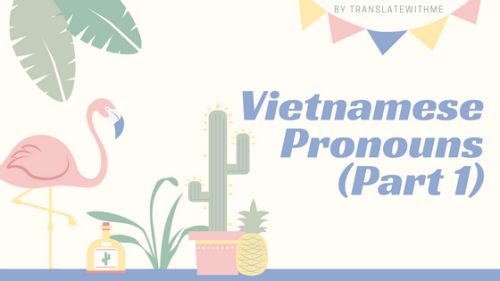
Hi guys! Long time no see. Update on me: I’m done applying to colleges!! After a long time of procrastinating on this topic (lol), I finally got it together and made a post on pronouns. This post was so difficult to make because of the endless pronouns used in Vietnamese. As always, if I left anything out or if any information is wrong, feel free to inform me! Thank you so much for supporting me <3
Referring to yourself (I), gender-neutral:
Tôi (Formal, unfamiliar, professional, pairs with Bạn): You use this in a formal and professional setting where you're unfamiliar with the person you're talking to. You shouldn't prefer to yourself as tôi when talking to someone older/superior to you. People typically use this pronoun to prefer to themselves when their audience is unknown (like in novels/essays) or when they're talking to a big crowd, especially if the crowd consists of different genders and age groups.
Ta (Old language, pairs with Ngươi/Mi): It is used by superior to subordinate (like between a King and his servant, lol don't use it guys). It is sometimes used by the speaker which includes themselves with the person being addressed if they're familiar with each other.
Tao (Informal, mostly familiar, pairs with Mày): Extremely informal, street language. Typically used between close friends or in a vulgar manner against those you dislike. Sometimes is used by superior to subordinate but not in a professional setting.
Tớ/Mình (Neutral regarding fimiliarity and formality, pairs with Cậu/Bạn): Use when talking to friends or someone who's the same age as you because these pronouns are not too informal nor are they formal. In my opinion, tớ is the "innocent" pronoun because I honestly can't remember using it past 2nd grade. In my experience, mình is a more widely used one so when in doubt, use mình.
Tui (Neutral regarding familiarity, no gender-neutral pairing although Cậu would work but it sounds unatural): Use when talking to friends or someone who's the same age as you. It is typically used among friends and mostly between people of the same age. Regarding formality, it is leaning towards informal though not rude.
Referring to the listener (you), singular, gender-neutral:
Bạn (Pairs with Tôi, also works with Tớ/Mình): Formality and professional level depends on the I form it is being used with. It is pretty uncommon because it's an awkward way to call someone.
Ngươi/Mi (Old language, pairs with Ta): It is what the superiors used to prefer to their subordinates to look down on them.
Mày (Informal, mostly familiar, pairs with Tao): Extremely informal, street language. Typically used between close friends or in a vulgar manner against those you dislike to look down on them.
Cậu (Neutral regarding fimiliarity and formality, pairs with Tớ/Mình): Use when talking to friends or someone who's the same age as you because this pronoun is not too informal nor are they formal.
#Vietnam#vietnamese#learning Vietnamese#Vietnamese language#vietnamese langblr#language#languageblr#langblr#Beginners#vietnamese beginners#learn vietnamese#translatewithme#mine
177 notes
·
View notes
Text
concept: I’m able to fluently express myself in a wide range of languages. The eyes of native speakers lighten up when they hear me speak their language, complimenting me on my skills. I have now access to culture and people in a way I never had before.
20K notes
·
View notes
Text
french linking words 🌿
Ainsi – Thus, In This/That Manner
La fée transforma ses jambes en queue de poisson, et ainsi, la princesse devint une sirène.
The fairy transformed her legs into a fish tale, and thus, the princess became a mermaid.
C’est Ainsi Que – It’s This Way
Elle a travaillé dur pendant dix ans. C’est ainsi qu’elle a gagné la compétition.
She worked hard for 10 years. She won the competition that way.
Alors – Then, So, Hence
Jean Noël ne pouvait pas supporter le bruit dans le club, alors il est sorti.
JN couldn’t bear the noise in the club, so he went out.
Alors Que – While, Whereas, When
Alors que Sophie aime le jazz, Marie déteste ça.
Whereas Sophie loves jazz, Mary hates it.
Aussitôt Que –As Soon As
Aussitôt que la chatte s’est endormie, les souris se sont montrées.
As soon as the cat fell asleep, the mice showed themselves.
D’autant Plus – All The More
Il partageait sa passion de la danse. Elle l’aimait d’autant plus.
He shared her passion for dance. She loved him all the more.
D’autant Plus Que – Even More So Since
Je suis vraiment déçue. D’autant plus que je lui avais dit de venir chez nous.
I am really disappointed. Even more so since I told him to come to our house.
Bien Que – Even Though (*Followed By The Subjunctive)
Elle l’a fait, bien qu’elle n’en ait pas eu envie.
she did it even though she didn’t feel like it.
Si Bien Que – Hence
Ils parlaient à demi-voix si bien qu’elle ne pouvait pas les entendre.
They spoke softly, hence she couldn’t hear them.
Cependant – Nevertheless, Meanwhile, However
Je ne suis pas de son avis. Cependant je le suivrai.
I don’t share his opinion. Nevertheless I will follow it.
Dès – Since, From
Dès ce moment, il a refusé de parler d’elle.
From that moment, he refused to talk about her.
Dès Que – As Soon As
Je te téléphonerai dès qu’elle arrivera.
I’ll call you as soon as she gets here.
En Tant Que – As (A)
En tant qu’ingénieur, elle est très précise.
As an Engineer, she is very precise.
Lorsque – When
Ils ont cueilli les cerises lorsqu’elles étaient mûres.
They picked the cherries when they were ripe.
Malgré – Despite
Malgré son effort, cela n’a pas suffi.
Despite her efforts, it wasn’t enough.
Même Si – Even If
Il ira même si elle n’y va pas.
He’ll go even if she doesn’t.
À Moins Que – Unless (*Followed By The Subjunctive)
Vous ne pourrez pas voir la directrice à moins que vous ayez un rendez-vous.
You will not be able to see the director unless you have an appointment.
Néanmoins – However, Nevertheless, Nonetheless
Elle avait peu d’argent néanmoins elle lui a tout donné.
She had little money, but she gave all to him nonetheless.
Pendant Que – While, As
Marc étudie la chimie pendant qu’il écoute la radio.
Marc studies chemistry while he is listening to the radio.
Pour Que – So That (*Followed By The Subjunctive)
Il a couru pour qu’elle ne l’attende pas trop longtemps.
He ran so that she wouldn’t wait for him too long.
Pourtant – Although, Still, Nevertheless
La femme a plus de quarante ans, mais c’est pourtant une beauté.
The woman is over forty, but she is nevertheless a beauty.
Puisque – Since, Because, As, Seeing That, For That Reason
Puisque sa maman ne voulait pas jouer au Monopoly, le petit garçon est sorti jouer dehors.
Since his mother didn’t want to play Monopoly, the boy went to play outside.
Quand Même – Even Though, All The Same, Nevertheless
Ce n’est pas lui qui chantait le mieux, mais il a gagné la compétition quand même.
He wasn’t the best singer, but he won the contest all the same.
Quant À – As For
Quant à lui, il préfère ne pas discuter de ce sujet dangereux.
As for him, he’d rather not talk about this dangerous topic.
Quoique – Though, Although (*Followed By The Subjunctive)
Quoiqu’elle ne sourie pas beaucoup, en réalité elle est très contente.
Although she doesn’t smile much, in fact she is really happy.
Quoi Que – Whatever, No Matter What (*Followed By The Subjunctive)
Quoi qu’il dise, elle ne le croit pas.
Whatever he might say, she won’t believe him.
Sinon – Except, If Not, Otherwise, Except That, Unless
Ne sors pas sans manteau, sinon tu vas attrapper froid.
Don’t go out without a jacket, otherwise you’ll catch a cold.
Tandis Que – Whereas, While
Il préfère aller à la plage pour les vacances, tandis qu’elle préfère aller à la montagne.
He likes to go to the beach for vacations, whereas she prefers the mountains.
#french#France#french langblr#language#french language#languageblr#learn french#learning french#french intermediate#intermediate#french grammar#grammar
8K notes
·
View notes
Text
My fave film from China:
Big fish & Begonia, 大鱼海棠, pin. Dà Yú Hǎi Táng, 🐬& 🌹
“We are the Guardians of humans souls and the laws of nature in the world. We are neither human beings or gods, but the Others.”

Chun is one of ‘the Others’ about to undergo a rite of passage travelling to the sea of the human world as a red dolphin, but the journey does not go safely as she is saved from drowning by a young kind-spirited human boy who dies in consequence. She chooses to protect and raise the young fish safely until it can return to live back in the human world - even when she knows that the journey is forbidden & dangerous, and she might lose her immortal life because of it.

Date of Release: 8th of July 2016
Directed by: Liang Xuan & Zhang Chun
Language: Mandarine Chinese
Running time: 90 minutes
Time it took to get me to cry: 2 minutes or less

Anything more you need to know:
It took 11 years to animate the entire film and it was highly expected in China.
The visuals, the story, every detail in the film is soulful and undeniably beautiful, you will want to pause every screen and just stare at it for two hours before you unpause.
The art for the movie posters is,,,,, just…. Just go watch it!
The film has an array of fascinating characters that will always kinda remain a mystery…
If it’s available in your area please support the film makers by buying or renting it legally, the movie absolutely deserves it.

Chinese film poster/cover (I’m so sorry the artist is not mentioned, but I think it’s official art by Studio Mir)
P.S. If you watch it and make fanart please link it to me! 🐠✨
°~Part 1/? of my favourite films over the world~°
#omg this!#chinese culture#chinese#China#learning chinese#learn chinese#langblr#language#languageblr#chinese langblr#culture
1K notes
·
View notes
Text
Korean Masterlist:
FROMIRELANDTOKOREA’S LESSON MASTERLIST
Seeing as I have a masterlist for ALL of my posts, including resources, books, etc (find it here) I wanted an organised lesson one! I hope this will help everyone!
HANGUL/READING:
Lesson 1: Hangul Basic Consonants Pt.1
Lesson 2: Hangul Basic Consonants Pt.2
Lesson 3: Hangul Basic Consonants
Lesson 4: Diphthongs
Lesson 5: Aspirated and Double Consonants
Lesson 6: Batchim Pt.1
Lesson 22: Batchim Pt. 2
NEED TO KNOW:
Lesson 17: How Korean Age Works
Lesson 18: Levels of Politeness in Korean
VOCABULARY:
Lesson 7: Hello, Thank You, Goodbye, Yes and No
Lesson 8: I’m Sorry
Lesson 9: Please, More, a Little
Lesson 14: Native Korean Numbers and Uses
Lesson 16: Sino-Korean Numbers and Uses
Lesson 19: Days of the Week
Lesson 20: Months
Lesson 21: Body Parts
Lesson 23: School Subjects
Lesson 24: School Vocabulary
Lesson 25: Family
Lesson 42: Today, Tomorrow, Now etc.
Lesson 58: Vegetables
Lesson 59: Fruit
Lesson 60: Emotions
Lesson 61: Food and Drink
Lesson 68: Sports
Lesson 69: Places in Town
Lesson 79: Animals
Lesson 80: Clothes
Lesson 84: Sickness Pt. 1
Lesson 85: Sickness Pt. 2
Lesson 86: Sickness Pt. 3
Lesson 93: Transportation
Lesson 94: Halloween
GRAMMAR:
Lesson 10: It Is, What is It?
Lesson 12: This Is, What is This?
Lesson 13: This, That, It, Thing
Lesson 26: Have/Don’t Have
Lesson 17: 15 Useful Verbs
Lesson 27: Present Tense Conjugation
Lesson 28: Past Tense Conjugation
Lesson 29-32: Future Tense 1 2 3 4
Future Tense Meanings and Examples 1 2 3 4
Lesson 33: How to Form Korean Sentences
Lesson 34: Don’t + Verb
Lesson 35: Topic/Subject Marking Particles ~은/는 + ~이/가
Lesson 36: Topic/Subject Marking Particles ~은/는 + ~이/가 Pt 2
Lesson 37: Object Marking Particle ~을/를
Lesson 38: Want To -고 싶어요
Lesson 39: Location Marking Particles ~어디, ~에, ~에서
Lesson 40: Negative Sentences
Lesson 41: Negative Sentences with 하다
Lesson 43: Who?
Lesson 44: Why, How, How much?
Lesson 45: From - To - , From - Until -
Lesson 46: Therefore, So
Lesson 47: And, With ~하고, ~(이)랑
Lesson 48: But, However, ~그렇지만, ~그런데
Lesson 49: To/From Someone
Lesson 50: Plural Nouns
Lesson 51: Telling Time
Lesson 53: -지 마세요 (지마)
Lesson 54: -(으)세요 Imperative
Lesson 55: -아/어/여 주세요
Lesson 56: -도 Too, Also, As Well
Lesson 57: -만 Only
Lesson 62: Can, Cannot - (으)ㄹ 수 있다/없다
Lesson 63: Present/Past/Future Progressive
Lesson 64: A bit, Really, Very, Not really, Not at all
Lesson 65: Changing Nouns into Verbs -는 것
Lesson 66: Counters 개 + 명
Lesson 67: To Be Good/Bad At
Lesson 70: Have to, Should, Must
Lesson 71: Still, Not Yet
Lesson 72: Already
Lesson 73: (으)로
Lesson 74: If, In Case
Lesson 75: Let’s
Lesson 76: Pronouns + Possessive Pronouns
Lesson 77:ㄹ/을 것:
Lesson 78: Doable/Worth Doing
Lesson 81: (으)ㅂ시다
Lesson 82: 처럼 Like
Lesson 83: More….Than
Lesson 87: 좋다 vs 좋아하다
Lesson 88: -ㄴ가
Lesson 89: 다, 더 - All, More
Lesson 90: Behind, In Front of, Beside
Lesson 91: Written Descriptive Form Adjectives
Lesson 92: Before -ing
Lesson 95: To be Similar to/The Same as -같다
Lesson 96: To Care/Not Care Pt.1
Lesson 97: To Care/Not Care Pt.2
Lesson 98: Connecting Verbs
Lesson 99: Might, Perhaps, It’s Possible
Lesson 100: To Want 원하다
PHRASES:
Lesson 11: Where Are You From? I’m From
Lesson 52: Self Introduction
#korean#korea#korean langblr#learn korean#learning korean#language#korean language#langblr#languageblr
18K notes
·
View notes